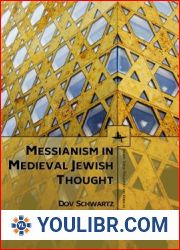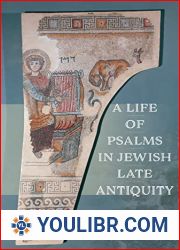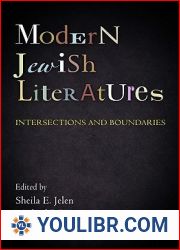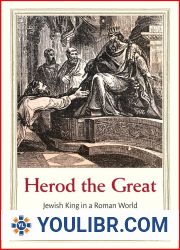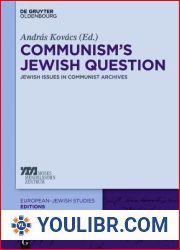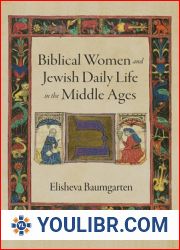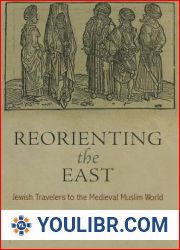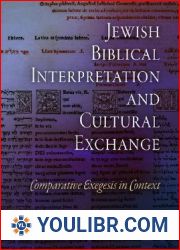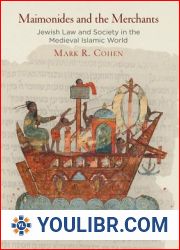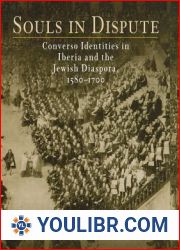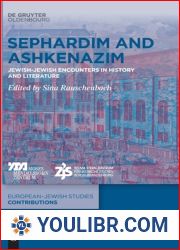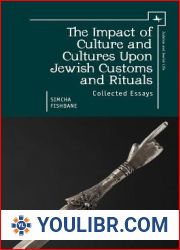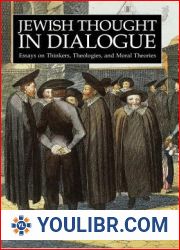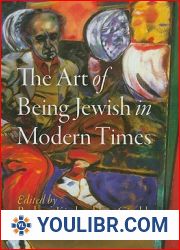
BOOKS - Samaritans, The (Jewish and Christian Texts)

Samaritans, The (Jewish and Christian Texts)
Author: Etienne Nodet
Year: September 7, 2023
Format: PDF
File size: PDF 3.1 MB
Language: English

Year: September 7, 2023
Format: PDF
File size: PDF 3.1 MB
Language: English

Samaritans: The Jewish and Christian Texts In the book "Samaritans: The Jewish and Christian Texts Etienne Nodet delves into the history and beliefs of the Samaritans, an ancient religious group that has been faithful to a classical form of monotheism for centuries. The book begins by exploring the significance of the Samaritans during the time of Josephus and the New Testament, specifically in the region of Galilee, Samaria, and Judea, which corresponds to Canaan during the time of Joshua. Nodet examines the account of 2 Kings 17, which describes the Samaritans as descendants of settlers sent by the Assyrians after the fall of the kingdom of Israel in 721 BC. During the Maccabean crisis, the Samaritans separated from the Jews, marking a shift in their relationship from peaceful coexistence to conflict. Nodet argues that despite this division, the Samaritan religion continued to thrive with a succession of high priests up to the present day, maintaining its "immemorial permanence" and connection to the earliest worship of YHWH in Israel.
Самаритяне: еврейские и христианские тексты В книге «Самаритяне: еврейские и христианские тексты» Этьен Ноде углубляется в историю и верования самаритян, древней религиозной группы, которая веками была верна классической форме монотеизма. Книга начинается с изучения значения самаритян во времена Иосифа Флавия и Нового Завета, особенно в районе Галилеи, Самарии и Иудеи, что соответствует Ханаану во времена Иисуса Навина. Нодет рассматривает сообщение о 2 Царствах 17, в котором самаритяне описываются как потомки поселенцев, посланных ассирийцами после падения Израильского царства в 721 году до нашей эры. Во время Маккавейского кризиса самаритяне отделились от евреев, что ознаменовало переход их отношений от мирного сосуществования к конфликту. Нодет утверждает, что, несмотря на это разделение, самаритянская религия продолжала процветать с последовательностью первосвященников вплоть до наших дней, сохраняя свое «незапамятное постоянство» и связь с самым ранним поклонением ЙХВХ в Израиле.
Samaritains : Textes juifs et chrétiens Dans le livre Samaritains : Textes juifs et chrétiens, Étienne Nodé s'attarde sur l'histoire et les croyances des Samaritains, un groupe religieux ancien fidèle depuis des siècles à la forme classique du monothéisme. livre commence par étudier la signification des Samaritains à l'époque de Joseph Flavius et du Nouveau Testament, en particulier dans la région de Galilée, de Samarie et de Judée, ce qui correspond à Canaan à l'époque de Josué. Nodet examine le rapport sur les 2 royaumes 17, qui décrit les Samaritains comme les descendants des colons envoyés par les Assyriens après la chute du royaume d'Israël en 721 av. J.-C. Au cours de la crise des Maccabées, les Samaritains se sont séparés des Juifs, ce qui a marqué le passage de leur relation de la coexistence pacifique au conflit. Nodet affirme que malgré cette division, la religion samaritaine a continué à prospérer avec une succession de grands prêtres jusqu'à nos jours, tout en maintenant sa « constante immémoriale » et son lien avec le culte le plus ancien de YHWH en Israël.
Samaritanos: Textos judeus e cristãos No livro «Samaritanos: textos judeus e cristãos», de Etienne Node, aprofunda-se na história e crença dos samaritanos, um antigo grupo religioso que há séculos é fiel à forma clássica do monoteísmo. O livro começa com o estudo do significado dos samaritanos na época de José Flávio e do Novo Testamento, especialmente na região da Galileia, Samaria e Judeia, que corresponde a Canaã no tempo de Jesus Navin. Nodet considera a denúncia dos 2 reinos 17, que descreve os samaritanos como descendentes dos colonos enviados pelos assírios após a queda do Reino de Israel em 721 antes de Cristo. Durante a crise de McKaway, os samaritanos se separaram dos judeus, marcando a transição de suas relações de convivência pacífica para conflito. Nodet afirma que, apesar desta divisão, a religião samaritano continuou a prosperar com a sequência de sumos sacerdotes até hoje, mantendo sua «permanência imemorial» e sua ligação com a adoração mais precoce do YHCH em Israel.
Samaritani: testi ebrei e cristiani Nel libro «Samaritani: testi ebrei e cristiani», Etienne Node approfondisce la storia e le credenze dei samaritani, un antico gruppo religioso che da secoli è fedele alla forma classica del monoteismo. Il libro inizia studiando il significato dei samaritani ai tempi di Giuseppe Flavio e del Nuovo Testamento, in particolare nella zona di Galilea, Samaria e Giudea, che corrisponde a Canaan ai tempi di Gesù Navina. Nodet considera la notizia dei 2 regni 17, in cui i samaritani vengono descritti come discendenti dei coloni inviati dagli assiri dopo la caduta del regno d'Israele nel 721 a.C. Durante la crisi Mackaway, i samaritani si separarono dagli ebrei, segnando il passaggio della loro relazione dalla pacifica convivenza al conflitto. Nodet sostiene che, nonostante questa divisione, la religione samaritana ha continuato a prosperare con la coerenza dei sommi sacerdoti fino ad oggi, mantenendo la sua «immemorabile costanza» e il suo legame con l'adorazione più precoce degli YHV in Israele.
Samariter: Jüdische und christliche Texte In dem Buch „Samariter: Jüdische und christliche Texte“ geht Etienne Node auf die Geschichte und den Glauben der Samariter ein, einer alten religiösen Gruppe, die seit Jahrhunderten der klassischen Form des Monotheismus treu ist. Das Buch beginnt mit einer Untersuchung der Bedeutung der Samariter zur Zeit des Josephus und des Neuen Testaments, insbesondere in der Gegend von Galiläa, Samaria und Judäa, was Kanaan zur Zeit Josuas entspricht. Nodet befasst sich mit dem Bericht über 2 Könige 17, in dem die Samariter als Nachkommen der edler beschrieben werden, die von den Assyrern nach dem Fall des Königreichs Israel im Jahr 721 v. Chr. ausgesandt wurden. Während der Makkabäer-Krise trennten sich die Samariter von den Juden und markierten den Übergang ihrer Beziehungen von friedlicher Koexistenz zu Konflikten. Nodet behauptet, dass trotz dieser Trennung die samaritanische Religion mit der Abfolge der Hohepriester bis in unsere Tage weiter gediehen sei und ihre „uralte Beständigkeit“ und Verbindung mit der frühesten Anbetung der JHWH in Israel bewahrt habe.
''
السامريين: نصوص يهودية ومسيحية في «السامريون: نصوص يهودية ومسيحية»، يتعمق إتيان نوديت في تاريخ ومعتقدات السامريين، وهي مجموعة دينية قديمة كانت مخلصة لشكل كلاسيكي من التوحيد لقرون. يبدأ الكتاب بفحص معنى السامريين في زمن يوسيفوس والعهد الجديد، وخاصة حول الجليل والسامرة واليهودية، وهو ما يقابل كنعان في زمن يشوع. يستعرض نوديت رواية الممالك 2 17، التي تصف السامريين بأنهم أحفاد المستوطنين الذين أرسلهم الآشوريون بعد سقوط مملكة إسرائيل في عام 721 قبل الميلاد. خلال أزمة المكابي، انفصل السامريون عن اليهود، مما يشير إلى انتقال علاقتهم من التعايش السلمي إلى الصراع. يجادل نوديت بأنه على الرغم من هذا الانقسام، استمر الدين السامري في الازدهار مع سلسلة من كبار الكهنة حتى يومنا هذا، وحافظ على «ديمومته القديمة» وارتباطه بأقدم عبادة YHWH في إسرائيل.
撒瑪利亞人:猶太和基督教文本在《撒瑪利亞人:猶太和基督教文本》一書中,艾蒂安·諾德(Etienne Node)深入探討了撒瑪利亞人的歷史和信仰,撒瑪利亞人是一個古老的宗教團體,幾個世紀以來一直忠於古典形式的一神教。這本書首先研究了約瑟夫斯和新約時期撒瑪利亞人的意義,特別是在加利利,撒瑪利亞和猶太地區,這與約書亞時期的迦南相對應。諾德斯(Nodetus)回顧了2個王國17的信息,其中撒瑪利亞人被描述為公元前721以色列王國淪陷後亞述人派遣的定居者的後裔。在馬卡比危機期間,撒瑪利亞人與猶太人分離,這標誌著他們的關系從和平共處轉變為沖突。諾德斯(Nodeth)認為,盡管存在這種分歧,但撒瑪利亞人的宗教一直以大祭司的順序蓬勃發展,直到今天,保持其「遠古的永久性」,並與以色列最早的YHVH崇拜聯系在一起。







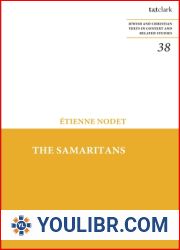
 49
49  2 TON
2 TON

